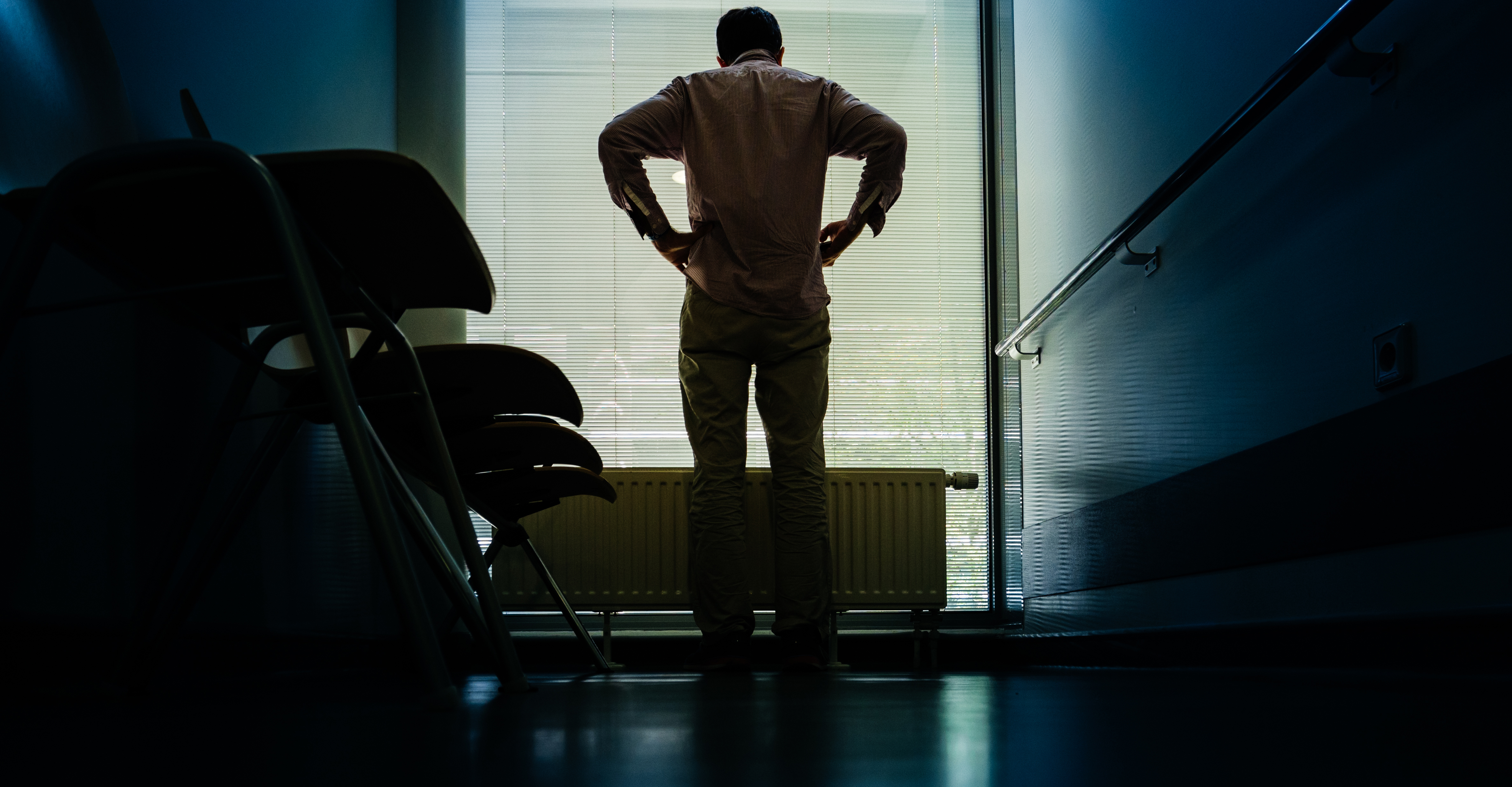The fear of cancer recurrence, as it is affectionately known in the world of psycho-oncology, affects as much as 87 percent of those who have had cancer. You might know this fear as scanxiety, which some patients call it.
Or you might not have a name for it at all. It doesn’t matter, since you are intimately familiar with the gut-churning feeling you get from the excruciating uncertainty you face every time you go for a scan, or see your specialist to find out whether the cancer is back. This fear robs you of your freedom to look ahead and make plans, filling your head with worry, confusion, and doubt. It drains you of the mental energy you need to be creative, dragging you away from the precious time you have with your loved ones, your friends, and your life’s work.
My Little Epiphany
I remember how this worry welled up inside me two weeks before my first yearly check-up. It started with a reminder in my calendar, which caused an avalanche of questions to enter my mind: I wonder how it will go this time? Will my oncologist get the results in time? How accurate are they anyway? Will I find out for sure?
This niggling back pain I’ve been having – is it cancer? Wait, is it growing, has it spread? And if it is, is there more chemo, or another surgery, or is this it, and nothing more can be done?
The worries kept buzzing around in my mind, taking me deeper, and deeper, down the spiral of doom. Nothing made sense. I could not hold a conversation or make plans because at the back of my mind, a little voice kept asking, over and over again: What if the cancer is back? What if it’s back? What if it has come back?

There was no answer, and the more I tried to put those thoughts away, the more they came back to haunt me. It didn’t matter if I was in the shower, on my way to work, or hanging out with a friend – I could not stop thinking about it.
Can they tell that I’m exploding on the inside? Can I hold it in without losing it completely?
One day, I could not take it anymore. I had to get out of the house, try and clear my head. It was already late. I closed the gates behind me and crossed the street, making my way to the path running along the train tracks.
It was pitch dark, and I could only see a few steps ahead of me. I cursed and howled into the night, furious at the injustice of it all.
I kept asking myself, What is it, what is something that I can do about the whole cancer thing coming back?
The answer was always the same. Well, nothing, it’s not up to me. It’s all biology and random chance.
But if I couldn’t do anything about cancer coming back, then what about the rest of my life – did I have that under control?
I stopped in my tracks and looked up. The moon was peeking out between the dark clouds above, a tiny shape filled with light.
I asked myself, “Am I living my best life right now?”

Immediately, without having a clue of what my best might look like, I knew I was not where I wanted to be.
Because if I was living my best life, doing the best I could do, on my terms, then I could live with the worry about cancer coming back, I could deal with uncertainty because it’s only one part of me, something I can manage.
The only thing that mattered was whether I was at my absolute best, for if the cancer had returned, then I could deal with whatever came my way. I wouldn’t have any regrets about the life I’d been living, and I wouldn’t be able to fault myself in any way.
How can you explain something that you can’t put into words just yet?
The life I had on that day was another chance I had been given, and in many ways, I was letting it go to waste.
Feeling sorry for myself for getting cancer and putting my family through the difficulties that come with cancer treatment, I had never considered the possibility of having a good life after cancer.
While I couldn’t control what the cancer might do, nobody could stop me from getting my life in order. I had the power to make sure any worries I might have about cancer did not control my life in any way.
All this time, I’d been looking for things that could go wrong, so wasn’t it time to look for opportunities to make things right?

How To Sideline Your Worry About Cancer Coming Back
I believe there are four key elements you need to take down your worry about cancer coming back, and to bring more energy, fulfillment, and fun into your life after cancer.
This simple framework is built around the letters of the word SCAN. It is based on my experiences, working with hundreds of people who strive to move away from anxiety towards a more calm, measured, and impactful life beyond cancer.
The four key elements to SCAN your life for what you can make right are:
Support – building a deeper connection with the people you care about the most
When you are in trouble, most people around you want to help, but they don’t know how. Often, they don’t want to risk offending you in any way. It’s only natural – they don’t want to say the wrong thing that might make you feel worse, only for them to feel stupid and insensitive in the end.
In order for you to have the support you want in your life, it’s vital to guide your people towards helping you in a meaningful way. This does not mean you will ask them to do something complicated or grand, only that you tell them what you would appreciate in some way. You might think that telling people what you expect them to do is pushy or even rude, but those who truly care about you will be grateful that you make it easy for them to support you.

Contribute – making a difference that is consistent to you and your values
When you give your best to those in your life that you care about the most, when you devote your creativity towards meaningful projects that help your community, when you give a helping hand to those who may be struggling right now, when you get behind a cause that speaks to you on a deep, personal level, you push worry out of your way. It may not be easy to start, but you have lived through your cancer, and you are still here. You have the strength to give your best and contribute in a way that is consistent with who you are today and how you want to see yourself in the future.
Appreciate – finding peace with yourself and your own place in the world
If I am honest with myself and with you, I often fall into the trap of everyday life, when a myriad of things are demanding my attention. I forget where I came from and start taking beautiful, precious things for granted. The simple beauty of holding my younger son’s hand as he learns how to walk. The blissful pleasure of sitting out on the deck, as the morning sun comes out to play. The gift of my older boy giving me a high five before he runs on through the school gates. There are times I forget that all this was nearly taken away, and that appreciating the life I have been given is not a choice, but a virtue, a sacred duty that I must uphold each and every day.
When you elevate appreciation from a fleeting, impromptu thought to a daily ritual, your cancer will not hold sway over you any longer. It merely exists as a memory, while the present, all-consuming and powerful, takes it place. Appreciating the people and circumstances we find ourselves in is vital, but gratitude begins with yourself, in recognising your way of life and how far you have come.
In your journal, use this prompt to find gratitude daily:
If there’s one thing I’m grateful for today, it’s…

Negotiate – working around life’s inevitable changes and challenges
No, life after cancer isn’t always easy. If anything, cancer has taught me that life is filled with surprises, and not all of them are good. But cancer has also taught me that you can get through it. If you can weather the storm, then you look to the future with hope.
When you know there will be obstacles in your way, you can anticipate the challenges and work around them. When you expect challenges and you plan to get through them, you will keep your balance at a time when you need it the most.
Cancer has taught us that we are resilient in the face of struggle. It has proven beyond any reasonable doubt that we can survive despite the worry and the changes we never asked for. After surviving cancer, we have come to accept that we will be living with the unknown. But the uncertainty that you might get cancer is a better alternative than the certainty of seeing the scan with the tumours inside you.
You are still here, my friend. You have stopped fighting and started living. You deserve the life you want, and you will prevail, despite the challenges that may come your way!


